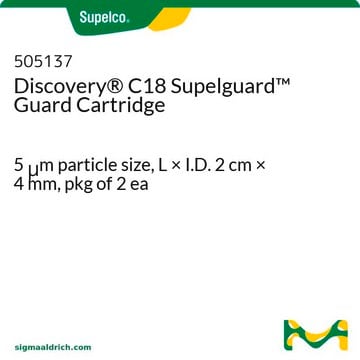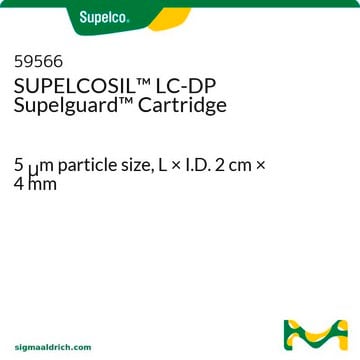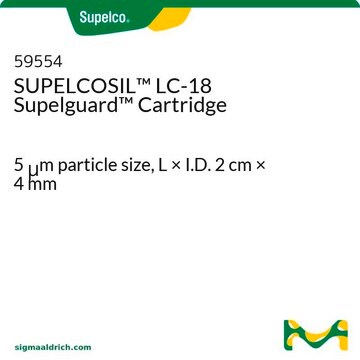59565
SUPELCOSIL™ LC-18-DB (5 µm) HPLC Columns
L × I.D. 2 cm × 4 mm Supelguard Guard Cartridge pkg of 2 ea, Guard Cartridge holder required for use
About This Item
Recommended Products
product name
SUPELCOSIL™ LC-18-DB Supelguard Cartridge, 5 μm particle size, L × I.D. 2 cm × 4 mm
Agency
suitable for USP L1
Quality Level
packaging
pkg of 2 ea
technique(s)
HPLC: suitable
L × I.D.
2 cm × 4 mm
matrix active group
C18 (octadecyl) phase
particle size
5 μm
application(s)
food and beverages
compatibility
use to protect LC-18-DB
separation technique
reversed phase
Looking for similar products? Visit Product Comparison Guide
General description
Legal Information
Choose from one of the most recent versions:
Certificates of Analysis (COA)
Sorry, we don't have COAs for this product available online at this time.
If you need assistance, please contact Customer Support.
Already Own This Product?
Find documentation for the products that you have recently purchased in the Document Library.
Customers Also Viewed
Protocols
Amino Acid Analysis is the suitable tool for precise determination of protein quantities but also provides detailed information regarding the relative amino.
Our team of scientists has experience in all areas of research including Life Science, Material Science, Chemical Synthesis, Chromatography, Analytical and many others.
Contact Technical Service



